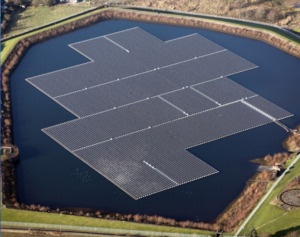Indiana regulators approve settlement cutting I&M electric rates
State regulators have approved a settlement with Indiana Michigan Power under which the utility will cut its Indiana residential customers’ base electric rates nearly 6% by next year.
State regulators have approved a settlement with Indiana Michigan Power under which the utility will cut its Indiana residential customers’ base electric rates nearly 6% by next year.
The Indiana General Assembly has overwhelmingly passed a bill that would allow electric utilities to build small modular reactors, a move that could pave the way for commercial nuclear power in the state for the first time.
Five days after announcing a deal with Citizens Energy Group to restore water service to tenants at two south-side Indianapolis apartment complexes, officials said they’re planning to get the city’s money back, but a lack of communication with the properties’ owners could complicate matters.
The 1-gigawatt power plant in southwestern Indiana is currently owned by Hoosier Energy and is approaching retirement.
IBJ reporter John Russell joins the podcast to talk about why the Indiana Legislature is consider a proposal that could help clear a path for smaller, modular nuclear reactors to be located in Indiana.
Indiana lawmakers are taking another stab at setting up statewide standards for large wind and solar projects, a year after a group of counties shot down an earlier effort.
The vote represents a major shift for Indiana, which has never had commercial nuclear power and has long relied on coal to power homes and factories.
As climate change pushes states in the U.S. to dramatically cut their use of fossil fuels, many are coming to the conclusion that solar, wind and other renewable power sources might not be enough to keep the lights on.
Plants in four states, including Indiana, will have to close the coal ash ponds months or years ahead of schedule, the EPA said Tuesday, citing deficiencies with groundwater monitoring, cleanup or other problems.

Solential Energy Solutions LLC is partnering with France-based Ciel & Terre to secure solar arrays engineered to float on the surface of reservoirs and treatment lagoons.

The state’s largest electric utility wants to retire much of its coal-fired generating fleet by 2035, but critics say Duke Energy lags all other Indiana utilities in the green-energy transition.
The company said it expects the restoration of electric service to be “substantially complete” by late Monday evening.

The Midcontinent Independent System Operator, or MISO, is the organization responsible for managing the power grid across Indiana, 14 other states and the Canadian province of Manitoba.
Bill Fine, the Indiana Utility Consumer Counselor, wrote in a filing that “after receiving base rate increases in 2018 and 2020, I&M has not made the case for this increase at this time.”

AES Indiana’s Eagle Valley natural gas power plant, located near Martinsville and capable of powering about a half-million houses, conked out in April, due to problems with breakers and relays. Six months later, it is still offline while technicians try to repair a wide range of damage to critical parts.
The $1.5 billion solar farm’s first phase is expected become operational by mid-2023 and will produce 400 megawatts of electricity, enough to power 75,000 households, according to the company.
Citizens Energy Group said it would use various measure to keep prices down even though the market price for natural gas is about double the level of last fall.
While many cities are selling their wastewater systems to utility companies, the city of Fishers is bucking the trend.

Activist investor Paul Singer says the huge utility has been underperforming its peers and argues that Duke’s customers would be better served by locally managed utilities.
The attack underscored the vulnerabilities of the nation’s energy sector and other critical industries whose infrastructure is largely privately owned.